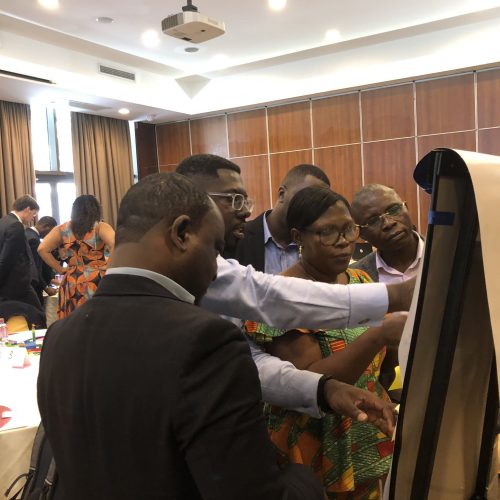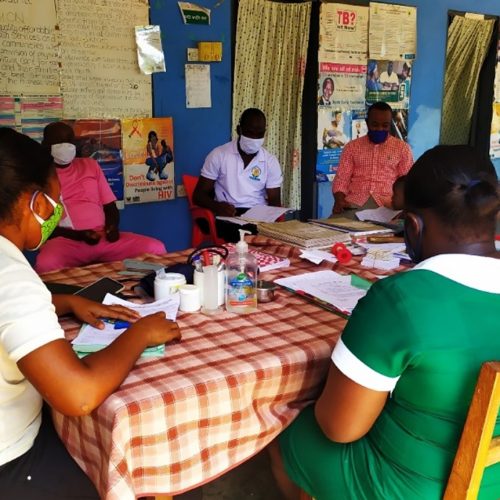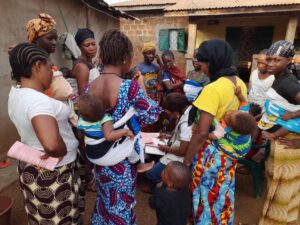Working to Improve health system performance for LMICs through implementation of the high performing health care (HPHC) tool
To achieve Universal Health Coverage (UHC), countries should have high performing health care (HPHC). USAID’s new vision adopts the HPHC framework, which outlines four essential characteristics (accountability, affordability, accessibility, and reliability (AAAR) needed to achieve the UHC. The HPHC tool was developed to provide information about the functionality of health systems processes, functions, and intermediate outcomes. The implementation of the tool will help provide a comprehensive snapshot of the health system and facilitate development of recommendations for policy programs and research towards UHC.
The Challenge
In 2019, countries reaffirmed their commitment to achieving UHC. In the context of UHC, countries aspire to a concept of broad access to essential health care, including safe, effective, quality, and affordable essential medicines and vaccines, along with protection from catastrophic financial risk. Although many low- and middle-income countries have integrated UHC into their national strategies, progress in translating these commitments into equitable and quality health services and increased financial protection for the population have been slow, as countries are burdened with health systems that do not respond to country needs in ways that promote the achievement of UHC. UHC requires HPHC, where health systems are accountable, affordable, accessible, and reliable with whole-of society collaboration. Many countries have not copiously acknowledged the full set of processes that are required to achieve HPHC and have insufficient data to create the evidence base on how they are performing.


The Opportunity
USAID’s vision emphasizes whole-of-society collaborative efforts between public health services, communities, and health care institutions towards HPHC and UHC. The HPHC framework provides a new outlook, emphasizing accountability, affordability, accessibility, and reliability (AAAR). These characteristics acknowledge the health system’s dual role of supplier and demand generator for health services, its responsibility in assuring health care is available when people need it and can afford, its recognition of the community’s vital role as consumers, advocates, and overseers. USAID and partners developed the HPHC tool, to help countries measure progress towards attaining a HPHC and ultimately UHC. The tool synthesizes input from key players, to provide real-time health system data that helps countries measure, plan, manage, and monitor the effectiveness of their health system strengthening efforts. The Accelerator’s support to implementing this tool will help countries to strengthen health system processes and performance, providing a robust snapshot to inform policy, research, and implementation of other activities.
Our Work
The HPHC tool is a pre-developed web-based survey tool with quantitative questions about the functionality of the health system across the AAAR domains. The Accelerator will implement the tool in partnership with the government in Ghana and a second country (TBD) to ensure ownership. By implementing this tool, we will support countries in measuring and tracking their health system performance within the context of AAAR care. Governments will have a comprehensive snapshot of their health systems, identify the strengths and weaknesses of their processes across the value chain, understand UHC beyond coverage or finance but in relation to social values, and facilitate the development of recommendations for policy programs and research.
The Accelerator will use convenience sampling to adapt the HPHC Tool’s official guidance. Our approach aims to increase representation and randomization and ensure reliable and valid results. Therefore, we will acknowledge the geographical and regional variations per country and tailor sampling accordingly. We aim for a sample size of 80-100 respondents per country.
Participants must have extensive work experience with the country’s health sector, directly or indirectly. They will be drawn from people working in four domains (public, private, non-governmental organizations (NGOs)/civil society organizations (CSOs)/community leaders, and international organizations). The Accelerator will leverage in-country staff to implement the tool, collect results, and organize validation meetings with stakeholders.
The team will subsequently produce a publicly available report on key findings and recommendations from the tool.
Local Partners





News & Resources
Un outil de plaidoyer axé sur le changement de comportement : Renforcer le dialogue citoyen pour un financement durable de la santé
Un outil de plaidoyer budgétaire innovant favorise l'engagement citoyen et...
Read MoreAccelerator Program Paves the Way for Ghana’s Launch of National Health Database
Discover how the Accelerator program played a vital role in...
Read MoreWebinar Summary: Why Implementation Research Matters for Health Systems Equity, Inclusion, and Impact
Explore key insights from the webinar on Implementation Research for...
Read More





